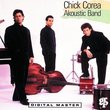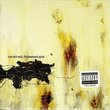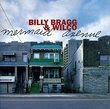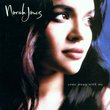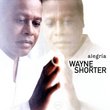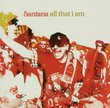| All Artists: Daniell Revenaugh, Lawrence Leighton Smith Title: Busoni: The Complete Music for Two Pianos Members Wishing: 0 Total Copies: 0 Label: EMI Classics Original Release Date: 1/1/2007 Re-Release Date: 12/4/2007 Genre: Classical Styles: Opera & Classical Vocal, Chamber Music, Forms & Genres, Fantasies, Historical Periods, Classical (c.1770-1830), Instruments, Keyboard Number of Discs: 1 SwapaCD Credits: 1 UPC: 094639746927 |
Search - Daniell Revenaugh, Lawrence Leighton Smith :: Busoni: The Complete Music for Two Pianos
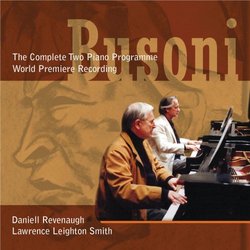 | Daniell Revenaugh, Lawrence Leighton Smith Busoni: The Complete Music for Two Pianos Genre: Classical
|
Larger Image |
CD DetailsSimilarly Requested CDs
|
CD ReviewsMighty impressive; moving "Berceuse" too B. Guerrero | 12/05/2007 (5 out of 5 stars) "As I'm not a true connoisseur of classical piano, I'm not terribly qualified to discuss the technical merits of the pianists involved. However, I am casual friends with Daniell Revenaugh, and am fully aware of his life-long devotion to Busoni's music, as well his having studied piano with Egon Petri; Busoni's leading student. He also founded The Busoni Society, and was consulted by Kent Nagano prior to his embarking upon the Busoni operas, most of which are still available on CD. Revenaugh is perhaps best known as the conductor on the world premiere recording of Busoni's Mahlerian-scale piano concerto for EMI, performed by the highly revered John Ogdon (and in my opinion, his conducting is superb; just judging from the razor sharp response he gets from the RPO). That same EMI recording is now available on a budget priced "Encore" series reissue (EMI 72467). It has never been out of the catalog! Lawrence Leighton Smith is best known for his conducting of modern orchestral works with the Louisville Orchestra, many of which were composed by Americans. The fruits of his efforts are gradually coming out on CD from the First Edition label. Leighton Smith is now Conductor In Residence at Yale University, and that's where this recording was made. Daniell Revenaugh's EMI recording of short piano favorites - with some very interesting rarities included - continues to be a perennial favorite (Seraphim 73300). Both sound like expert pianists to my slightly uninformed ears (only by lack of comparisons, that is), but there's no question over their knowledge and expertise on Busoni's music. Perhaps even more pertinent, the two pianos are so well matched in tone that it's difficult to guess which pianist is playing the lead part.
What this disc contains is an 80 minute, recital-like program of Busoni's complete two piano music. It begins with Busoni's transcription of the "Magic Flute" Overture, and what a convincing transcription it is. I was somewhat taken back by the relatively long pauses between each of the famous "ta-dum" chord statements early on (only because I've never heard it that way). But interestingly enough, Revenaugh discusses their decision to make them so with an anecdote about someone standing backstage, deciding to peer into the orchestra pit to see if Gustav Mahler was OK due to his unusually long pauses as well (Vienna Imperial Opera in the early 1900's). In fact, the accompanying program notes - composed by Revenaugh himself - are as much entertaining as they are informative. And believe me, they're highly informative as Revenaugh gives plenty of technical background on each composition. Busoni and Petri buffs will definitely want to read them. The rest of the program contains what are interesting; highly contrapuntal (often times), and frequently charming homages to both Mozart and J.S. Bach (with the exclusion of the final item, which I'll discuss later). Busoni often times reworked existing material from these two superstar composers - sometimes strictly, and sometimes rather liberally. For example, the "Duettino Concertante" - a work that I was particularly taken with - is a literal transcription of the finale from Mozart's 19th piano concerto in F Major, with a few emendations such as a quasi-cadenza that includes a few "modern" harmonies (nothing too shocking). I do, however, find the half-hour long grinding out of contrapuntal material that makes up the bulk of his "Fantasia Contrappunctistica", to be a slightly tough nut for a first time listener, such as myself, to chew upon. Undoubtedly, it's a work that rewards multiple hearings, as it builds to quite a strong climax (beware: there are some BIG dynamics here!), and has some tender music in its quieter resolution as well. Further reading on the piece reveals that it's basically a Fantasia built around Bach's final, triple fugue from his masterful "Art Of The Fugue" (Contrapunctus XIX). It opens with the Chorale Prelude "Allein Gott in der Hoeh, sei Ehr'", followed by a short bridge passage that leads us directly into the first fugue subject. I think it's best not to get too wrapped up in the technical aspects of it, and just come to terms with it as a Busoni original. At the very least, it's quite a tribute to J.S. Bach. As a Mahler buff, it's only fitting that I'm most drawn to the final item on the recital: Busoni's "Berceuse Elegique", which was the very last musical work that Mahler ever conducted (New York). Egon Petri made his two piano transcription from Busoni's longer orchestral version. I find this to be both a fascinating and moving work, and wonder if Busoni might have orchestrated it specifically for Mahler (further reading reveals that that wasn't the case, but it's nice to fantasize over it). It has a sort of gentle, funeral procession-like pulse to it (but not a march!). Yet, it's not overly dark or tragic - more bittersweet than anything else. It turns out to be an incredibly appropriate work to sum up Mahler's biography. On the orchestral version, the work ends with a quiet stroke on the tam-tam (large orchestral gong); the very last musical sound that Mahler ever heard in concert. Petri "piano-fies" this effect by sounding unison low chords in the two pianos (it sounds like it might both pianos - not sure). What a moving yet tender way to end this program! With the exception of the long "Fantasia" - which I'll study further in separate hearings, in order to truly learn it - I'll want to replay this program numerous times. Highly recommended to anyone with even the slightest bit of curiosity. " |

 Track Listings (6) - Disc #1
Track Listings (6) - Disc #1